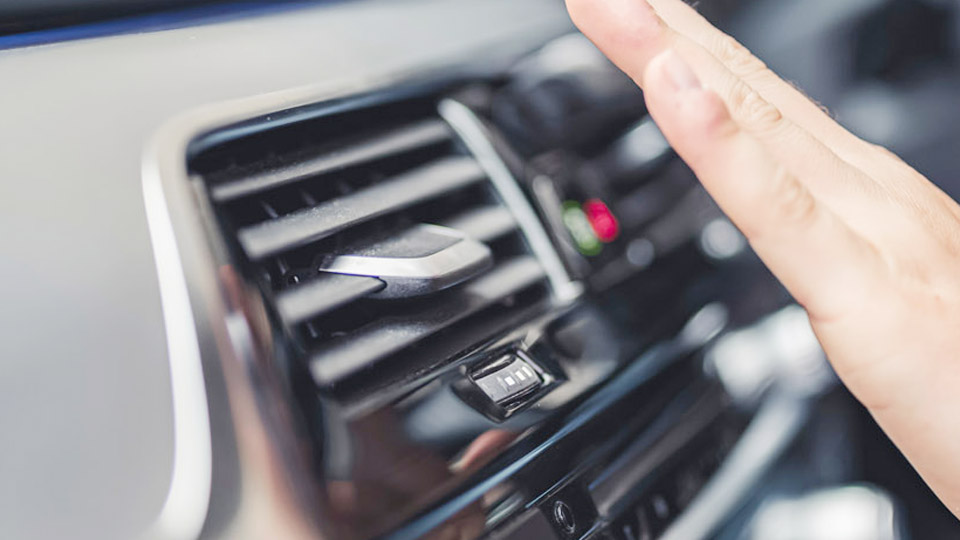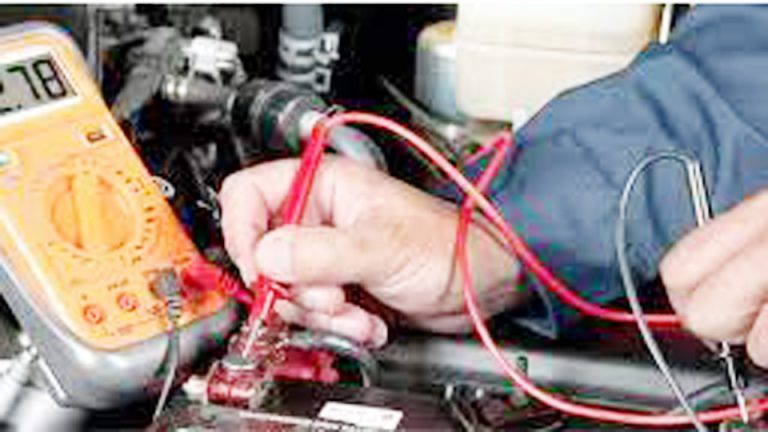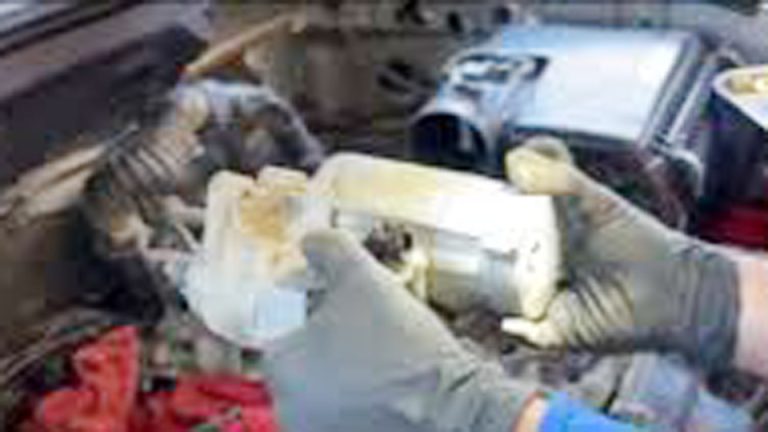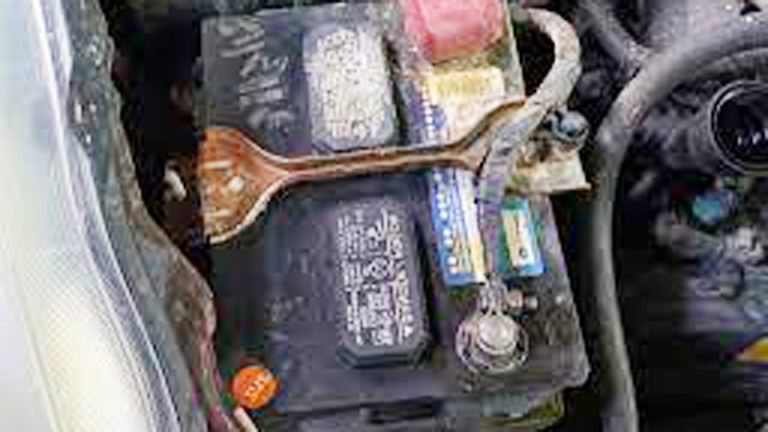I’ll never forget the summer I was driving my old sedan through a scorching Texas heatwave, desperate for the air conditioning to kick in, only to feel warm air blowing through the vents. The car was idling rough, and I started wondering, “Can a low car battery affect the air conditioning?” It’s a question that popped into my head as I sat there, sweating and frustrated.
I’ve spent years tinkering with cars—fixing everything from dead batteries to faulty AC systems—so I knew I had to dig into this. Turns out, the battery and AC are more connected than you might think. Let’s dive into what I learned, how I fixed it, and what you can do if you’re stuck in a similar situation.
Cars are like a big puzzle, and when one piece—like the battery—starts failing, it can mess with other parts, like the air conditioning. I’ve spent countless hours under the hood, helping friends and family with their car troubles, and I’ve seen how a weak battery can cause all sorts of headaches.

Image by dubizzle
I’ll walk you through how a low battery impacts your AC, what signs to look for, and how to troubleshoot it based on my own experience. If you’re a gearhead or just someone trying to stay cool, I’ve got you covered with practical advice.
How Does the Car Battery Work with the Air Conditioning?
To understand if a low car battery can affect the air conditioning, let’s start with the basics. Your car’s battery is like the heart of its electrical system. It provides the initial power to start the engine and keeps all the electrical components—like the AC, lights, and radio—running when the engine’s off.
Once the engine is running, the alternator takes over, charging the battery and powering everything else. But if the battery’s weak, it can throw a wrench into the whole system.
The air conditioning system relies heavily on electricity. The AC compressor, which is the heart of the cooling system, has a clutch that’s electrically controlled. When you turn on the AC, the clutch engages to start the compressor, which circulates refrigerant to cool the air. This process needs a steady supply of power.
I learned this the hard way when I was working on a buddy’s car. His AC wasn’t blowing cold, and we traced it back to a battery that was barely holding a charge. The compressor wasn’t getting enough juice to engage properly, leaving him with lukewarm air.
A low battery can also affect the blower motor, which pushes air through the vents. If the voltage is too low, the motor might run sluggishly or not at all. I’ve seen this in older cars especially, where the electrical system is already stretched thin. The battery, alternator, and AC all have to work together, so if one’s struggling, the others feel it.
Signs Your Battery Might Be Affecting Your AC
When I was trying to figure out why my AC wasn’t working, I started noticing other clues that pointed to the battery. If you’re wondering whether your battery’s to blame, here’s what I look for based on years of fixing cars:
Weak or No AC Cooling: If the air coming out of the vents is warm or barely cool, the AC compressor might not be engaging due to low voltage. This happened to me during that Texas heatwave—my AC was blowing, but it felt like a hairdryer.
Dimming Lights: When you turn on the AC, do your headlights or dashboard lights dim? That’s a sign the battery or alternator is struggling to keep up with the electrical demand.
Rough Idle with AC On: Turning on the AC puts extra load on the engine, which needs more power from the electrical system. A weak battery can make the idle shaky. I’ve felt this in my old truck when the battery was on its last legs.
Slow Blower Speed: If the air from the vents feels weak, the blower motor might not be getting enough power. I once fixed a car where the blower only worked on the highest setting because of a low battery.
Battery Warning Light: If your dashboard’s battery light is on, it’s a dead giveaway that your electrical system is in trouble.
These signs don’t always mean the battery’s the only problem—AC issues can also come from low refrigerant or a bad compressor—but they’re a good place to start. In my experience, checking the battery first saves a lot of time.
Why a Low Battery Messes with the AC
So, why exactly does a low car battery affect the air conditioning? It comes down to voltage and power delivery. A healthy car battery should provide around 12.6 volts when the engine’s off and 13.7 to 14.7 volts when it’s running (thanks to the alternator). If the battery’s weak—say, down to 11 volts or less—it can’t supply enough power to run the AC system properly.
The AC compressor’s clutch needs a strong, steady voltage to engage. If the battery’s low, the clutch might not activate, or it might engage intermittently, leading to weak cooling. I saw this on a customer’s minivan a while back. The battery tested at 11.2 volts, and the AC compressor was barely kicking on. After replacing the battery, the AC was ice-cold again.
A low battery also affects the engine’s performance, which indirectly impacts the AC. The compressor is driven by a belt connected to the engine, and if the engine’s struggling because of a weak electrical system, the compressor might not run at full capacity. I’ve noticed this in older cars especially, where the electrical system isn’t as robust as in newer models.
Diagnosing a Low Battery and AC Issues
When my AC started acting up, I didn’t rush to conclusions. Diagnosing car problems is like being a detective—you’ve got to follow the clues. Here’s how I approach it when I suspect the battery’s affecting the air conditioning:
First, I check the battery’s voltage with a multimeter. You can pick one up at any auto parts store for about $20, and it’s a lifesaver. With the engine off, the battery should read around 12.6 volts. If it’s below 12 volts, it’s probably too weak to handle the AC’s demands.
Next, I start the engine and check the voltage again—it should jump to 13.7–14.7 volts if the alternator’s doing its job. I once tested a friend’s car that was only hitting 13 volts with the engine running, and sure enough, the alternator was starting to fail.
Then, I turn on the AC and watch what happens. If the compressor doesn’t engage (you’ll hear a click when it does), or if the lights dim and the engine stumbles, the battery or alternator is likely the issue.
I also check the battery terminals for corrosion—those crusty, white deposits can block power flow. Cleaning them with a wire brush and some baking soda paste has fixed more problems than I can count.
If the battery checks out, I move to the AC system itself. Low refrigerant can mimic battery-related issues, so I use a gauge to check the pressure. But that’s a story for another day—let’s stick with the battery for now.
Testing and Replacing a Low Battery
If you suspect your battery’s causing AC problems, testing it is the first step. I always keep a multimeter in my toolbox, but if you don’t have one, most auto parts stores will test your battery for free. When I was dealing with my sedan’s AC issue, I tested the battery and found it was only holding 11.5 volts—not enough to keep the AC happy.
If the battery’s weak, replacing it is usually straightforward. Here’s how I do it:
- Turn Off the Car: Make sure the engine’s off and the keys are out of the ignition.
- Disconnect the Terminals: Loosen the negative terminal (black) first, then the positive (red). I always wrap the negative cable in a rag to avoid accidental contact.
- Remove the Battery: Most batteries are held down with a clamp or strap. Undo it and lift the battery out—be careful, they’re heavy!
- Install the New Battery: Set the new battery in place, secure it, and connect the positive terminal first, then the negative.
- Test the System: Start the car, turn on the AC, and make sure everything’s working.
A new battery typically costs $100–$200, depending on your car. Here’s a quick table based on my experience with common battery types:
| Battery Type | Cost Range | Life Expectancy | Best For |
|---|---|---|---|
| Standard Lead-Acid | $100–$150 | 3–5 years | Budget-friendly, most cars |
| AGM (Absorbed Glass Mat) | $150–$200 | 4–7 years | High-performance or luxury cars |
| Deep Cycle | $120–$180 | 4–6 years | Vehicles with heavy electrical loads |
After replacing the battery in my sedan, the AC was blowing cold again, and the rough idle smoothed out. But I also made sure to check the alternator, because a bad one can kill a new battery fast.
Other Possible Causes of AC Problems
A low battery isn’t always the culprit when your AC’s acting up. I’ve seen plenty of cars come into the shop with warm air blowing, and the battery was fine. Here are some other things I check based on my experience:
Low Refrigerant: If the AC system is low on refrigerant, the compressor won’t work properly. I’ve fixed leaks in hoses and recharged systems to get the AC back on track.
Faulty Compressor Clutch: The clutch can wear out or get stuck, preventing the compressor from engaging. I once replaced a clutch on an old SUV, and it was like giving the AC a new lease on life.
Blown Fuse or Relay: The AC system has fuses and relays that can fail. I always check the fuse box under the hood or dashboard—it’s an easy fix if that’s the issue.
Bad Blower Motor: If the air’s cold but barely coming out, the blower motor might be failing. I’ve seen this in high-mileage cars where the motor’s just worn out.
The trick is to rule out the battery first, since it’s an easy check, then move on to these other possibilities. I’ve learned to be patient—cars love to throw curveballs.
Tips to Keep Your Battery and AC Running Strong
Over the years, I’ve picked up a few tricks to keep my car’s battery and AC in good shape, especially during hot summers. Here’s what I recommend:
Check Your Battery Regularly: Test the voltage every few months, especially if your car’s over three years old. A quick check can catch a weak battery before it leaves you sweating.
Clean the Terminals: Corrosion on battery terminals is a common problem. I clean mine with a wire brush and some baking soda paste once a year.
Avoid Short Trips: Short drives don’t give the alternator enough time to charge the battery. I try to take longer drives occasionally to keep the battery topped up.
Turn Off the AC Before Shutting Down: I always switch off the AC before turning off the engine. It reduces the electrical load when you start the car next time.
Get Regular AC Service: Have your AC system checked every couple of years to catch leaks or low refrigerant early. I learned this after neglecting my own car’s AC and paying for a bigger repair later.
Stay Cool and Keep Your Car Happy
Dealing with a car that won’t stay cool is no fun, especially when you’re wondering, “Can a low car battery affect the air conditioning?” From my own experience, I can tell you it absolutely can.
A weak battery can starve the AC system of the power it needs, leaving you with warm air and a frustrating drive. By checking your battery, testing the voltage, and keeping up with maintenance, you can avoid a lot of headaches.
I love working on cars—it’s like solving a mystery every time something goes wrong. Whether it’s a low battery or another issue, there’s nothing more satisfying than getting your car back to running smoothly. Grab a multimeter, pop the hood, and start troubleshooting. With a little effort, you’ll be cruising in cool comfort again.
FAQ
What does it mean if my car’s AC isn’t blowing cold air?
If your AC isn’t blowing cold, it could mean a low battery, low refrigerant, a faulty compressor clutch, or a blown fuse. Start by checking the battery’s voltage and looking for other signs like dimming lights.
Can a low car battery affect the air conditioning?
Yes, a low battery can affect the AC by not providing enough power to engage the compressor clutch or run the blower motor properly. This can lead to warm air or weak airflow from the vents.
How do I know if my car battery is weak?
A weak battery might cause dimming lights, a rough idle when the AC is on, or a dashboard battery warning light. You can test it with a multimeter—it should read around 12.6 volts with the engine off.
How much does it cost to replace a car battery?
A new battery usually costs $100 to $200, depending on the type and your car’s needs. Labor is minimal if you do it yourself, but shops might charge $50–$100 for installation.
What else could cause my AC to stop working?
Besides a low battery, low refrigerant, a bad compressor clutch, a blown fuse, or a failing blower motor could be the issue. Checking these one by one will help you find the problem.
Is it safe to drive with a weak battery?
You can drive short distances, but a weak battery can lead to bigger problems, like stalling or a dead AC. Get it tested and replaced as soon as possible to avoid getting stranded.




